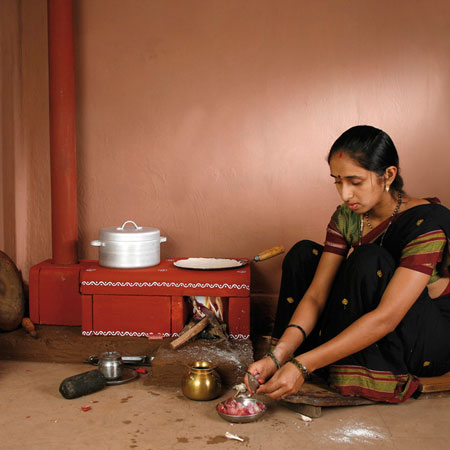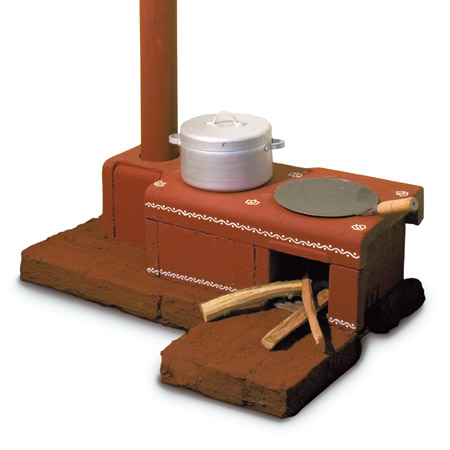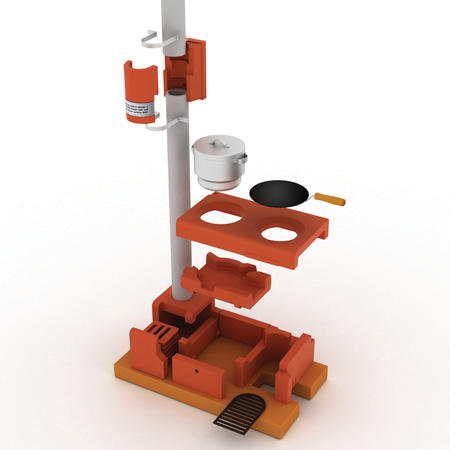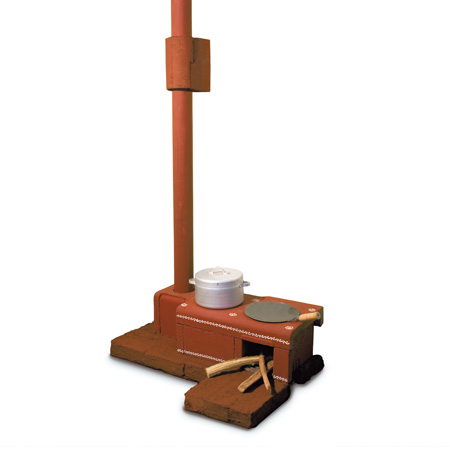
Chulha by Philips Design
Chulha, a cooking stove intended for use in the developing world by Philips Design, is among the winners of the Index Awards 2009, which were announced in Copenhagen last night.

Chulha allows people to cook in the traditional way but removes reduces the amount of fuel required and the risk of injury or death caused by smoke inhalation.

The stove won the Home category of the biannual awards, which promote design that improves people's lives and which has a prize of €100,000 per category.

Here's some text from Index Awards:
--
CHULHA
Home category
Intent: limit the dangerous health conditions caused by traditions of indoor cooking in many rural areas of the developing world. The Chulha is a stove designed to limit the dangerous health conditions caused by traditions of indoor cooking in many rural areas of the developing world.
The stove is being made available by Philips Design to the universe of social entrepreneurs so that they can, free of charge, produce the stove, themselves, and generate local business while helping counter what the World Health Organization estimates is some 1.6 million deaths per year from conditions prompted by the toxic fumes of indoor cooking with “bio-mass” fuels (wood, dung, peat, etc.).
The Chulha creates a safer environment for indoor cooking in several ways.
• It traps smoke and heat inside a locally cast housing in such a way as to heat two pot-holes with a high rate of efficiency to require less fuel;
• It then directs the smoke through a chimney chamber that includes a stack of slotted clay tablets – they capture particulates as the smoke moves through, cleaning the exhaust before it ever leaves the assembly; and
• The Chulha’s chimney then includes an indoor access for cleaning, eliminating the need seen in previous devices for a family member, usually the mother, to climb on the roof and attempt cleaning. This has been blamed for many accidents, along with the toxicity of the smoke.
Notably, Philips has gone to great lengths – and three iterations of the Chulha design – to make it something that seems familiar and attractive to users in the field. Conscious that tradition is the basis for much of the issue the Chulha addresses, Philips’ designers have concentrated much sensitivity on generating a readily acceptable response to the problem.
“It all started back in 2005,” says designer Unmesh Kulkarni of the Philips Design Team based in Pune, India. “In observance of 80 years of design, Philips brought together about 250 designers to look at global issues. Our CEO, Stefano Marzano, wanted to look at our ability to think about solving social problems.”
INDEX:Award recipient Stefano Marzano, CEO and Chief Creative Director at Philips Design in Eindhoven, the Netherlands, says, “The target users of the Chulha are all the families in rural environments. The focus for the creation of the Chulha was India, however there are similarities in many countries in Africa, Latin America and other regions, as well as in India.”
“The fact that this product can be manufactured by even the end-user creates the opportunity in any location,” Marzano says, “to actually start the production of the product.”
WHO estimates that 25 percent of indoor air-pollution deaths are in India, and that 800,000 infants die of related conditions worldwide, annually.
Designed by: Philips Design.
Design team: Unmesh Kulkarni; Praveeen Mareguddi, India.
Additional credits: Bas Griffioen; Simona Rocchi, the Netherlands.
Partners: Appropriate Rural Technology Institute (ARTI); end-users.